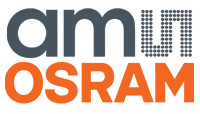 The European Commission has approved unconditionally, under the EU Merger Regulation, the proposed acquisition of OSRAM by AMS. The Commission concluded that the transaction would raise no competition concerns in the European Economic Area (‘EEA’).
The European Commission has approved unconditionally, under the EU Merger Regulation, the proposed acquisition of OSRAM by AMS. The Commission concluded that the transaction would raise no competition concerns in the European Economic Area (‘EEA’).
Both AMS and OSRAM are global suppliers of optical sensors, including certain light sensors and laser diodes for the consumer electronics, automotive, industrial, medical and other markets. The transaction would combine the companies’ optical semiconductor solutions and technologies.
The Commission’s investigation
During its investigation, the Commission received feedback from a broad range of competitors and customers of OSRAM and AMS, including manufacturers of consumer electronics and of automotive equipment.
Based on its preliminary investigation, the Commission found that the transaction, as notified, would not significantly reduce head-to-head competition between the companies in the markets for optical semiconductors, in particular for the following reasons:
- The companies have low to moderate combined market shares for certain light sensors and laser diodes for which their offers overlap and in most of those cases their respective products are not close substitutes from a customer perspective.
- A number of competitors offer viable alternatives to the companies’ products, and barriers to entry do not seem to prevent the emergence of new market entrants.
- The fast-evolving products and market dynamics as well as sophisticated buyers do not allow the companies to exert significant market power.
- A majority of market participants consulted by the Commission appear to be either supportive of the transaction or not concerned by it.
The Commission also found that vertical relationships between the activities of AMS and OSRAM did not result in harm to competition, mainly because the merged entity would have not have a sufficient degree of market power to restrict competitors’ access to essential inputs or to a sufficient customer base.
The Commission also investigated whether the merged entity could shut out competitors, through practices such as by bundling certain products. The Commission concluded that the merged entity would not have a sufficient degree of market power to engage in such strategies and harm competition.
The Commission, therefore, concluded that the transaction would raise no competition concerns in the EEA and cleared the case unconditionally.
Companies and products
AMS, headquartered in Austria, is a supplier of sensor solutions worldwide. The company is active on the development and manufacturing of high-performance sensing technologies in the consumer, communications, automotive, industrial, and medical end-markets with a focus on three strategic pillars: optical, imaging and audio sensing.
OSRAM, headquartered in Germany, is a photonics company that delivers lighting solutions and sensors, visualization and light-based treatments worldwide. Its product portfolio covers a broad spectrum from LEDs to other semiconductor-based technologies, such as infrared emitters, lasers and sensors, to light management systems, and to traditional and speciality lamps.
Merger control rules and procedure
The transaction was notified to the Commission on 29 May 2020.
The Commission has the duty to assess mergers and acquisitions involving companies with a turnover above certain thresholds (see Article 1 of the Merger Regulation) or that are referred to the Commission under Article 4(5) or Article 22 of the Merger Regulation. The Merger Regulation aims at preventing concentrations that would significantly impede effective competition in the EEA or any substantial part of it, for example by risking to bring higher prices, lower quality and/or less innovation. The Commission’s mandate under the European merger control rules is to assess the merger solely from the perspective of its effects on competition.
The vast majority of notified mergers do not pose competition problems and are cleared after a routine review. From the moment a transaction is notified, the Commission generally has 25 working days to decide whether to grant approval (Phase I) or to start an in-depth investigation (Phase II).
More information will be available on the Commission’s competition website, in the public case register under the case number M.9716.
Tagged with acquisition, AMS, lightED, Osram